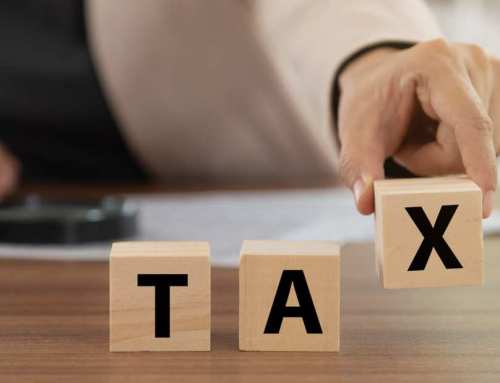2022-2023 Federal Budget Summary for Businesses
Payments from additional state and territory COVID-19 business support grant programs will be made non-assessable non-exempt income (NANE) for income tax purposes until 30 June 2022. The NANE treatment is to support businesses affected by state or territory lockdowns during the pandemic.
Since the 2021–22 MYEFO, the following programs have been made eligible:
- New South Wales Accommodation Support Grant
- New South Wales Commercial Landlord Hardship Grant
- New South Wales Performing Arts Relaunch Package
- New South Wales Festival Relaunch Package
- New South Wales 2022 Small Business Support Program
- Queensland 2021 COVID-19 Business Support Grant
- South Australia COVID-19 Tourism and Hospitality Support Grant
- South Australia COVID-19 Business Hardship Grant.
Source: Budget Paper No 2, p 17.
Small and medium businesses will be able to deduct an additional 20% of expenditure incurred on external training courses provided to their employees.
The additional deduction will apply for businesses with aggregated turnover of less than $50 million. The external training course must be delivered by an Australian entity and provided to employees in Australia or online. In-house or on-the-job training and expenditure for persons other than employees will be excluded.
The measure will apply for eligible expenditure incurred from 7:30pm (AEDT) on 29 March 2022 (Budget night) until 30 June 2024. Where eligible expenditure is incurred before 1 July 2022, the additional deduction will be claimed in the tax return for the following income year.
Source: Budget Paper No 2, pp 26–27.
Small and medium businesses will be able to deduct an additional 20% of eligible expenditure supporting digital adoption.
The additional deduction will apply for businesses with aggregated turnover of less than $50 million. Eligible expenditure will include the cost of depreciating assets and business expenses supporting digital adoption, such as portable payment devices, cyber security systems or subscriptions to cloud-based services. An annual cap of $100,000 will apply to expenditure eligible for the additional deduction.
The measure will apply for eligible expenditure incurred from 7:30pm (AEDT) on 29 March 2022 (Budget night) until 30 June 2023. Where eligible expenditure is incurred before 1 July 2022, the additional deduction will be claimed in the tax return for the following income year.
Source: Budget Paper No 2, p 27.
The Boosting Apprenticeship Commencements wage subsidy will be extended to support businesses and Group Training Organisations that take on new apprentices and trainees. The subsidy will now be available to 30 June 2022. This measure will provide for an additional 35,000 apprentices and trainees. Eligible businesses will be reimbursed up to 50% of an apprentice or trainee’s wages of up to $7,000 per quarter for 12 months.
Source: Budget Paper No 2, p 76; Glossy “Australia’s plan for a stronger future — Overview”, p 46.
Concessional tax treatment will apply from 1 July 2022 for primary producers selling Australian Carbon Credit Units (ACCUs) and biodiversity certificates.
Proceeds from the sale of ACCUs and biodiversity certificates generated from on-farm activities will be treated as primary production income, providing access to existing income tax averaging arrangements and the Farm Management Deposits scheme. The taxing point of ACCUs for primary producers that are eligible for tax averaging or the Farm Management Deposits scheme will also be changed to the year in which they are sold. Similar treatment will be extended to biodiversity certificates issued under the Agriculture Biodiversity Stewardship Market scheme.
Currently, proceeds from selling ACCUs are treated as non-primary production income and ACCU holders are taxed based on annual changes in the value of their ACCUs.
The measure will apply from 1 July 2022.
Source: Budget Paper No 2, p 26.
For employers that make larger offers in connection with employee share schemes in unlisted companies, participants can invest up to:
- $30,000 per participant per year, accruable for unexercised options for up to 5 years, plus 70% of dividends and cash bonuses, or
- any amount, if it would allow them to immediately take advantage of a planned sale or listing of the company to sell their purchased interests at a profit.
Regulatory requirements for offers to independent contractors will be removed, where they do not have to pay for interests.
Source: Budget Paper No 2, p 19.
The gross domestic product (GDP) uplift rate that applies to pay-as-you-go (PAYG) instalments and GST instalments will be set at 2% for the 2022–23 income year.
The GDP adjustment factor is usually calculated by using data from the Australian Bureau of Statistics and is based on GDP changes over the previous 2 calendar years. Using this statutory formula, it was expected that the GDP uplift for PAYG instalments would be much higher, causing potential cash flow issues for businesses. The 2% uplift rate will apply to instalments for the 2022–23 income year that fall due after amending legislation receives assent.
The current annual aggregated turnover thresholds for using the GST instalment method is $10 million and $50 million for PAYG instalments.
Source: Budget Paper No 2, p 29.
Additional funding will be provided to further reform insolvency arrangements. This includes:
- $22 million to implement reforms to unfair preference rules, including enhancing the Assetless Administration Fund, from 1 July 2023
- $7 million to clarify the treatment of trusts with corporate trustees under Australia’s insolvency laws, and
- $0.8 million in 2022–23 to implement the government’s response to the recommendations of the Review of the insolvent trading safe harbour, released in March 2022.
Source: Budget Paper No 2, p 171.
Fees associated with Australia’s business registers will be streamlined over 3 years from 2023–24.
Company registration and lifecycle management are scheduled to move to a modernised platform in September 2023. These reforms to Australia’s business registers will:
- remove the companies annual late review fee
- reduce the number of fees paid for ad hoc lodgments under existing requirements
- remove fees for searches conducted on the new platform, and
- provide $300,000 to the Department of Treasury to redesign wholesale business register search services facilitated by third-party services.
Source: Budget Paper No 2, p 6.
Wholly owned Australian incorporated subsidiaries of the Future Fund Board of Guardians will be exempt from corporate income tax.
The current income tax exemption applying to the Future Fund Board does not extend to its wholly owned subsidiaries. As a result, these subsidiaries pay corporate income tax and subsequently refund it to the Future Fund Board through franking credits attached to the dividends paid.
The measure will have effect from the subsidiaries’ first income year after assent of the enabling legislation.
Source: Budget Paper No 2, p 20.
Have Questions?
Ask us now, or book a time to speak
Book Free Consultation
Book your free 15 or 30-minute phone consultation at a time that suits you.
About Allied Accountants
Allied Business Accountants connects you with a network of top accounting, legal and financial services professionals to streamline and maximise every aspect of your business performance.
5.0
(Based on Google Reviews )
Recent Posts
- Your upcoming tax calendar October 2024 26 September 2024
- 5 ways to improve the governance of your family business 26 September 2024
- The Benefits of ‘A’ and ‘B’ testing 21 August 2024
- Help your Accountant to lower your Tax 12 August 2024
About the Author: David McKeller
Related Posts

We’re Waiting To Help You
Get in touch with us today and let’s start transforming your business from the ground up.








